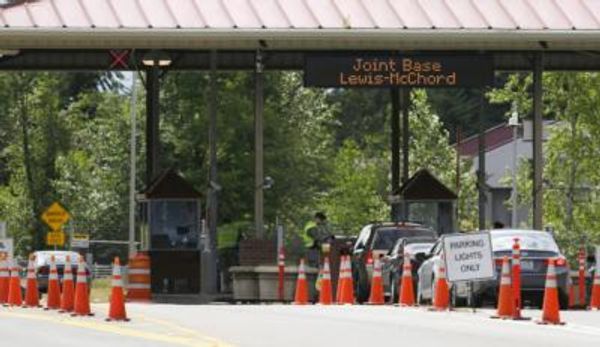SACRAMENTO, Calif. — The trouble began when Anaheim resident Stephanie Jeffcoat lost her car in 2016.
Forced to sleep in a tent and struggling with addiction, Jeffcoat found herself rapidly racking up tickets for various offenses — jaywalking, trespassing near railroad tracks, not having a bike light. The fines piled up: $80, $110, $55.
Homeless and without a job, Jeffcoat couldn't afford to pay the fines. When she arrived to a court in 2017, a judge added a $300 fee for failing to pay. Two years later, her debt to Orange County Superior Court had grown to about $800, after another late fee was tacked on.
"It was just another burden, just knowing that I had these fees, that I was in debt," Jeffcoat said. "It's a way to keep people oppressed. ... It's a way to keep people down, and doesn't help anybody besides the courts."
A relatively obscure courts fee called civil assessments is disproportionately impacting hundreds of thousands of low-income Californians of color for being unable to pay their traffic tickets and missing their payment deadline, according to a report published this month by the Debt Free Justice California coalition.
At least 300,000 Californians receive a civil assessment each year, often for relatively small traffic violations, though the number could be as high as 1 million residents, the study estimates.
California courts can impose a civil assessment of up to $300 on people for failing to show up to court or missing a payment deadline. But more than 80% of these fees are issued in traffic court, where people aren't required to show up. That means people charged are being punished primarily for not paying with money they do not have, according to the report.
"They miss the original deadline, and get charged $300, miss the payment plan and get charged another $300," said report co-author Elisa Della-Piana, who works as the legal director at Lawyers' Committee for Civil Rights of the San Francisco Bay Area. "You can see how quickly it adds up, and how quickly it's out of reach for people."
Given that California Department of Justice data show Black and Latino residents are also disproportionately stopped and cited for traffic violations, coalition organizers say civil assessments are a troubling system perpetuated so courts can raise revenue.
"The civil assessment operates as a regressive tax and prevents people from being able to move on with their lives after interacting with the criminal legal system, and entrenching people further into poverty," the authors wrote.
Representing a collection of civil rights and legal advocacy groups, the coalition surveyed more than 200 people with recent traffic citations to understand the impacts of hidden court fees.
Among the respondents, 68% said they could not afford to pay the $300 civil assessment fee, the report found.
The vast majority said that paying the fee on top of fines from the original ticket would have significant impacts on their ability to pay for basic necessities.
About 86% said it would affect their ability to pay for food, and 75% they would struggle to pay for their utilities. About two out of three said it would affect their ability to pay rent.
"So many people are trying to take care of everything, to do the right thing, coming in and begging for help because they can't pay ... and are choosing between rent and food for their family, and paying these fees," Della-Piana said.
The consequences of failing to pay court fees can spiral out of control fast. A person's wages could be garnished. Money can be pulled directly out of their bank account, or their tax returns could be pulled. For people in already financially precarious situations, the debt can become an additional barrier to financial stability.
"It's really dramatic to have money disappear from your bank account, to be counting on a tax return and see it disappear," she said.
The civil assessment system has its roots in California's "tough on crime" era. In 1996, the Legislature expanded the authority of county courthouses to impose civil assessments in traffic infraction cases to raise funding and handle the dramatic increase in prosecutions and incarcerations. Courts and government services are still in part funded by these fees.
Though California law gives discretion to courts to issue a civil assessment "up to $300," 88% of courts surveyed in the study use the full $300 as the default amount imposed in every case.
In the fiscal year 2019-20, California courts collectively received more than $96 million in revenue from civil assessments, and more than half that revenue was retained by local courts. Sacramento County collected about $3.7 million in civil assessment fees in the last year.
California's $300 civil assessment fee is also "higher any other state that I've seen," Della-Piana said. In Delaware, if someone's cited for not complying a traffic signal, late fees are capped at $30. Other states like Florida and Utah have late fees under $150.
Gov. Gavin Newsom's budget this year proposes dropping the maximum civil assessment fee to $150, and allocating $50 million to courts to adjust for the loss in revenue.
But while the proposed reduction is a step in the right direction, Della-Piana said, $150 is still a burden for many Californians.
A majority of respondents, 73%, said they didn't even know they could be fined $300 for missing a deadline to pay or failing to appear in court — meaning it can't be reasonably argued that the fee plays an important role in producing court appearances and timely payments, authors wrote.
Instead, text message reminders could help residents avoid additional late fees incurred from missing additional payment deadlines, Della-Piana said. Partial debt relief, or alternatives to payment, would also be helpful, according to survey responses.
In 2019, Jeffcoat moved into a homeless shelter, tired of living life on the street. She got sober, enrolled in school.
When she showed up in court that year, she told the judge she was turning her life around, and he dropped all the fees and fines down to $25 for one of her cases. A different judge agreed to personally pay off her fees and fines stemming from a separate case a couple years later.
Most Californians aren't so lucky, Della-Piana said, and one way or another will have to pay off ballooning fees.
Jeffcoat, now an organizer at A New Way of Life Reentry Project, a group that supports formerly incarcerated women, said her life has transformed in the last couple years. But the debts of her past are still following her, Jeffcoat said.
Her state and federal tax filings were recently intercepted by San Bernardino Superior Court. The county court pulled out nearly $900 to cover restitution and court fees, Jeffcoat said.
"They're still coming for me," Jeffcoat said. "Just having these barriers, even with my life being on track, it's crazy. ... I had no idea I even owed anybody anymore."







